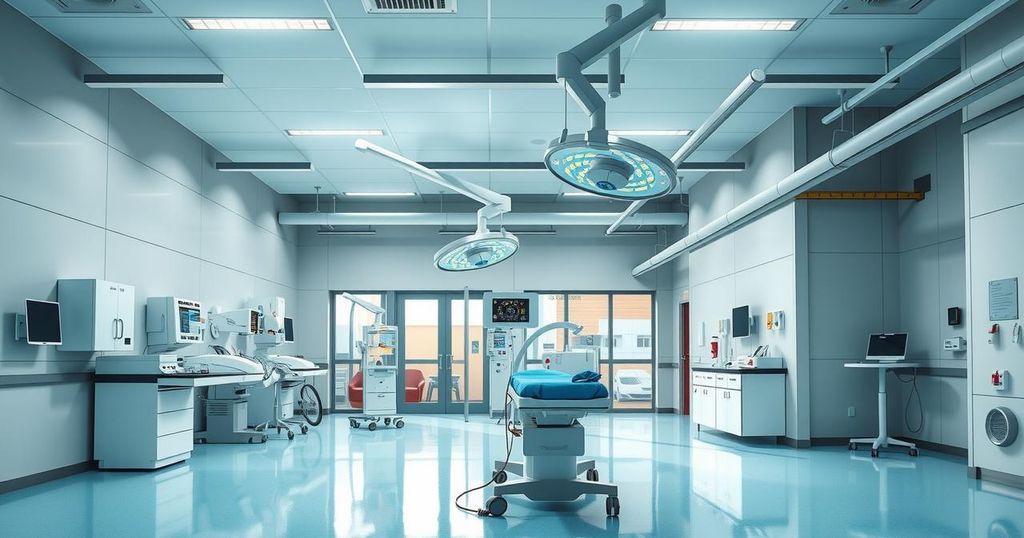Chief Amet Mabior Yel celebrated the opening of Madhol Hospital, a significant development for healthcare access in South Sudan. Funded by the UAE, the facility aims to serve the Northern Bahr el Ghazal state’s healthcare needs, particularly with the influx of refugees. Officials including Governor Mawut and Sheikh Nahyan emphasized the importance of international collaboration to enhance health services amidst ongoing regional challenges.
Chief Amet Mabior Yel, a 72-year-old traditional leader from Madhol Payam, expressed immense joy at the opening of Madhol Hospital, which is conveniently located near his home. Yel, along with his family, arrived early to witness the occasion, celebrating a significant milestone for his community. He remarked, “Now, at the age of seventy, a hospital has finally been built right at our doorstep; it is truly a blessing.” The new hospital promises to alleviate the burden of long-distance travel for healthcare.
The health system in South Sudan remains fragile, plagued by limited facilities and frequent public health issues, compounded by ongoing conflict in the neighboring Sudan. The Madhol Hospital is set to serve as the principal referral hospital for the overpopulated Northern Bahr el Ghazal state, providing essential medical services to the local population.
Constructed in Madhol Payam, approximately 64 kilometers from the Sudan border, the Madhol Field Hospital received funding from the United Arab Emirates (UAE). His Excellency Simon Ober Mawut, Governor of Northern Bahr el Ghazal State, highlighted the significance of the hospital, stating that it addresses substantial healthcare challenges amid the influx of refugees and returnees from Sudan. He emphasized, “This hospital will reduce pressure from the only referral hospital we have.”
His Excellency, Sheikh Shakhbout Nahyan Al Nahyan, UAE’s State Minister of Foreign Affairs, reiterated the UAE’s commitment to enhancing healthcare in South Sudan. He affirmed the intention to collaborate with international partners to deliver essential health services to the population, stating, “We surely affirm the UAE commitment to making a positive impact in the lives of millions of people.”
Dr. Karamagi, the WHO Representative for South Sudan, noted the inauguration of Madhol Hospital as a significant advancement in strengthening the healthcare system. He remarked on the valuable partnerships established to improve health outcomes, stating, “This facility is a valuable addition to our collaborative efforts. WHO will continue to work with the Ministry of Health, UAE, and all actors in the health sector.”
Over recent months, the ongoing conflict in Sudan has displaced numerous individuals, increasing pressure on South Sudan’s healthcare system. The northern states have particularly seen a surge in displaced persons, highlighting the urgency of health service delivery.
WHO and its partners are diligently working to provide healthcare to refugees and returnees, significantly enhancing disease surveillance and emergency response efforts. The UAE’s contribution extends beyond infrastructure, as WHO has distributed essential medical supplies, including infectious disease kits and resources for malnutrition, along with training for healthcare workers on disease management and prevention.
The inauguration of Madhol Hospital marks a critical development in South Sudan’s health infrastructure, addressing the urgent healthcare needs of both local communities and displaced individuals from the Sudanese conflict. The collaboration between the UAE, WHO, and the South Sudanese government underscores the importance of international partnerships in advancing healthcare systems. As the country faces significant public health challenges, the establishment of this facility represents a hopeful step toward improved health service delivery and better outcomes for the population.
Original Source: www.afro.who.int




